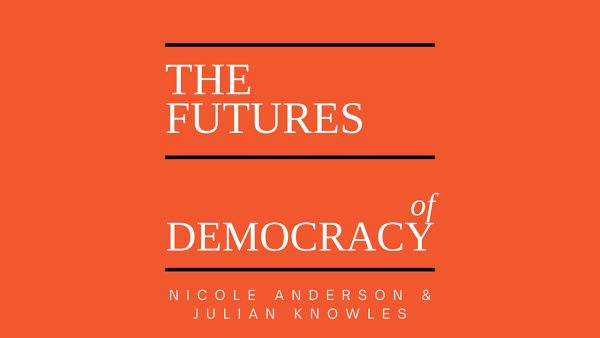
Artificial Intelligence, Transparency and Accountability
May 2, 2022
Do we know we are being classified and scored on a daily basis in Western society? What ethical questions does this pose?
Hosts Nicole Anderson and Julian Knowles continue their discussion on the effects of artificial intelligence on democracy. Where is AI making decisions about our lives, and how do we retrace its steps and make it accountable?
To answer this question and others, hosts Anderson and Knowles pick up the conversation on AI and democracy by examining the issues of government and corporate accountability and transparency with Kate Crawford, Adam Nocek and Peter Schlosser. Nocek is a leading philosopher in technology, and Schlosser is both a scientist and education leader.
The conversation begins with the meaning of the word “intelligence” in the context of AI, particularly after discussing the lack of sentience, empathy, emotion or affect.
“If artificial intelligence is making decisions about humans,” Knowles said, “who are sentient beings, who have feelings, there are clearly impact that sit in an emotional realm, and they can cause real harm, not just from poor decisions but from this fundamental lack of empathy toward humans around decisions.”
In agreement, Anderson said artificial intelligence is, in terminology, a trap. In actual fact, it is the opposite of artificial, and is profoundly material, and its people who give AI its “intelligence.”
Crawford brings up the exploitation involved in its material realms of labor, broadening the question of AI’s effects of democracy into one of day-to-day labor as well.
“There’s this belief that these are systems that can perform cognitive tasks,” Crawford said. “Well again, I think this is a misnomer, as these are, again, large scale systems of pattern recognition.”
As the group dive into the issue, Crawford describes the myth of depth in AI which “simply isn’t there.”








